Wall Street Journal Declares, ‘China Called Mr. Trump’s Bluff and Seems To Have Won This Round’
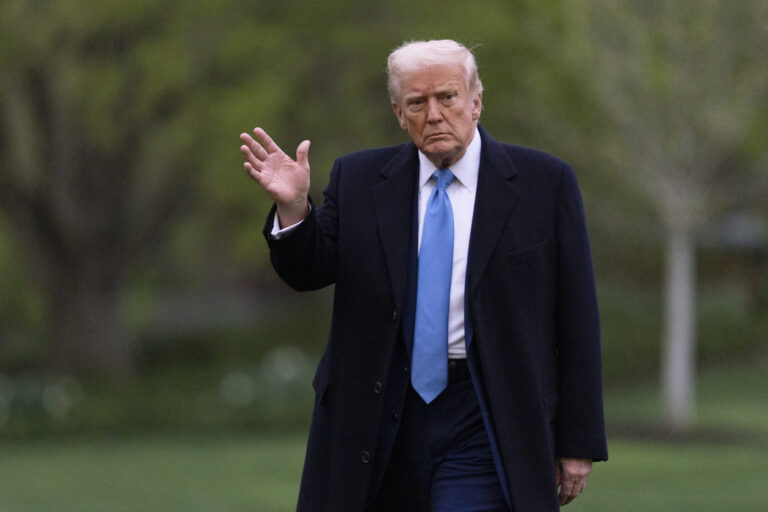
AP Photo/Manuel Balce Ceneta
The Wall Street Journal editorial board delivered a rough verdict for President Donald Trump in his ongoing trade war with China – and the world.
Trump rolled out sweeping tariffs on dozens of countries three weeks ago, but reserved the worst of them for the United States’ third-largest trading partner. Initially, Trump imposed a 34% tariff on all Chinese imports, but after Beijing retaliated with tariffs of its own, Trump kept ratcheting up the figure to the tune of 145%. On Tuesday, however, the president said that actually, the tariff will not be 145%.
“One hundred forty-five percent is very high, and it won’t be that high,” Trump told reporters on Tuesday in the Oval Office. “It won’t be anywhere near that high. It’ll come down substantially. But it won’t be zero.”
On Wednesday evening, the Journal’s editorial board said Trump blinked – not just with China, but with Canada and Mexico.
“First he carved out space for Mexico and Canada from his reciprocal tariffs,” the editorial board wrote. “Then he put his reciprocal tariffs on everyone except China on a 90-day pause. Then the Customs bureau gave exceptions to Apple, Nvidia and big electronics companies. Now comes word that Mr. Trump may substantially cut his 145% tariff rate on China.”
The paper went on to note that Trump is singing a much different tune from that of White House trade adviser Peter Navarro, who has been unrelenting in his support of tariffs, particularly on China.
“It’s hard to see this as anything other than a retreat amid the harsh reaction of financial markets, worries about recession and price increases, and a sharply negative reaction from the rest of the world—friend and foe,” the Journal continued before going so far as to declare China defeated Trump this time around and said U.S. diplomatic influence is “ebbing”:
Another harsh reality is that China called Mr. Trump’s bluff and seems to have won this round. When Mr. Trump imposed his tariffs in the first term, President Xi Jinping retaliated with some restraint and sent a delegation to negotiate a trade deal.
This time he retaliated in tit-for-tat fashion and pushed all of his anti-U.S. economic and diplomatic levers. He has cut off U.S. access to crucial rare-earth minerals, stopped the delivery of Boeing jets, looked elsewhere for food and natural-gas imports, and unleashed regulators against American companies.
Beijing has also warned countries not to do trade deals with the U.S. that exclude China—or else. With even U.S. allies facing Mr. Trump’s tariff assault, Beijing’s threat has resonated in a way that it never previously did. U.S. diplomatic sway is ebbing.
This week, the CEOs of several big-box stores warned Trump that his trade policy will yield empty shelves.
“The big box CEOs flat out told him the prices aren’t going up, they’re steady right now, but they will go up,” one anonymous administration official told Axios. “And this wasn’t about food. But he was told that shelves will be empty.”
New: The Mediaite One-Sheet "Newsletter of Newsletters"
Your daily summary and analysis of what the many, many media newsletters are saying and reporting. Subscribe now!
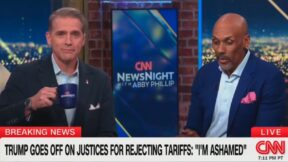
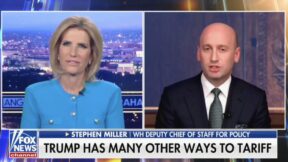
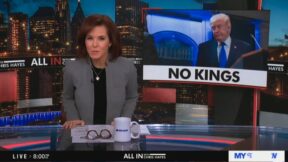
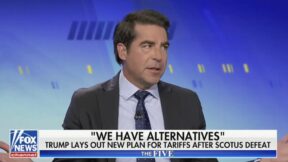
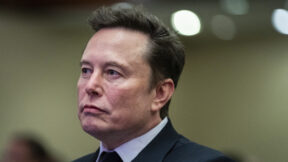

Comments
↓ Scroll down for comments ↓